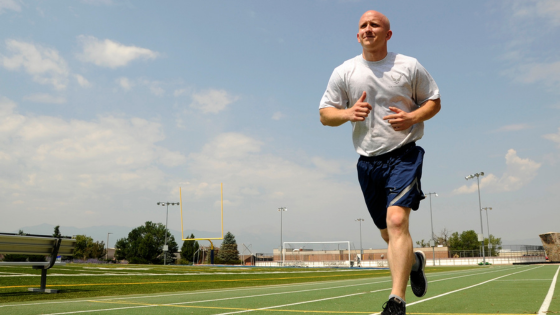

Work Out Harder, Not Smarter
Working out harder is the primary goal of a smart training program. You shouldn’t worry about having the perfect program, and should focus on putting in the effort if you want results, especially in the long-term.

Why Strength Fluctuates
Strength fluxuations are a natural part of training and aren’t necessarily a sign that you’re not getting stronger or something is wrong with your training program. As long as there remains an upward trend over time, you’re good! Stress, sleep schedule, recovery time, and how much you’re eating can all effect how strong - or not - you are on any given day. Disrupted training, like going on vacation or being sick, can also cause a dip in strength, but these setbacks are usually minor and getting back to your pre-break levels happens relatively quickly. The changes in strength can often be small numbers, too small to be noticed when the minimum weight you add is at least 5 pounds. The use of smaller fractional plates help make the flucuations in strength more clear.

Can We Target Individual Muscles?
Different exercises for the same muscle groups do work muscles differently, but not in the hyper specific way that people think it’ll tighten, lift, or radically create muscle growth. Variety in exercises to make sure the entire muscle group is strengthened can be incorporated into workout routines, but more variety doesn’t mean better/more gains. If you have a good program with a little bit of variety, it’s more important to focus on consistency and adding weight over time, rather than worry about tweaking exercises.

Understanding Grip Strength Regulation
Grip strength autoregulation can be a useful tool in order to maximize your workouts on any given day - grip strength is a good indicator of full body readiness. If your grip strength is good, then you typically do a more challenging workout, versus a low grip strength which may be a sign to hold back or modify your workouts. Generally, grip strength testing is simple and easy to use, but should still be used intelligently in the context of your training program.

How Lifting Made Me Smarter
Often, physical activity improves more of our lives than just our bodies, it helps our brains, too. Regular exercise can help with undertanding organization, practice, goal setting, and finding meaning in what you’re learning. When the things you learn personally mean something to you, it’s more likely you’ll retain that knowledge. Some of the physical benefits of lifting - energy regulation, improved sleep, and mood stabilization - helps us be more attentive and energetic, aiding in the learning process.
